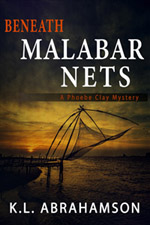Creative Energy – Fatigue and Being Fit Enough
Living with two Bengal cats, I’m astounded by their boundless energy. These are two year old cats. They should be getting more sedentary, but I swear a hamster wheel would do them both good. The galloping of paws on my hardwood floors, and the boundless, easy leaps up to ceiling-high windows is enough to exhaust me after a day of work. I think cats keep a perfect writer’s schedule. They work when they want. They play when they want. They sleep when they want. And when they know they’re in trouble they can vanish like the wind before you can do anything about it, leaving you to deal with the aftermath. I wish I had their energy. Of course I also know cats who only get up for a trip to their food dish, and whose ankles groan every time they leap down from the couch.
Which is a lot like what can happen to writers when they’re not fit enough.

It might not be leaping tall buildings, but writing is far more arduous than most people think. Physical ailments abound amidst writers: Carpal tunnel syndrome; bad backs; stiff necks and shoulders; not to mention the issue of midriff spare tires. All of which means that writers need to take care of themselves.
I’m a perfect example of someone who hasn’t always done so. I had my desk set up with the computer screen slightly off centre and ended up throwing out my back. I was immobilized with pain for six months (still writing using voice recognition software – now that was hilarious) before the Canadian Health Care system took pity and gave me a disc-ectomy. Thankfully the pain went away.
l spent a week at a writing retreat and turned out 50-70 pages a day. The result was carpal tunnel so badly that numbness ran from my hands right up to my biceps for about a week. Even now, three years later, typing any more than about 20 pages touches off the problems again.
Both of these issues were things I could have foreseen and both were issues I could have guarded against, but that’s the problem. Unless you are doing this a lot, many people don’t understand just how unnatural sitting in a chair is, and just how much repetitive stress our hands are under when we type.
So what do we need to do to keep going?
As professional writers, or even serious beginning writers, we first of all need to treat ourselves and our art seriously. To do this work we need the tools to do it. One things we can do is to set up our writing space properly, seated facing straight ahead, feet flat on the floor, with appropriate supports for our hands/wrists/arms and bac. Writers need to try out ergonomic keyboards, raised screens (that are directly in front of them), and appropriate chairs. Some people wear wrist supports, or small balls in their palms that help keep their hands in ergonomic positions. Remember, if you are aching when you are writing, or after you’ve written, something is wrong. You have to fix it if you are going to write long term.
The second action writers have to take is exactly that—action. Writers who believe that their only responsibility is to keep writing are mistaken. Yes, you need to keep writing, but you also need to keep fit to do it. As I said, sitting places stress on the body, and the fact that writing is sedentary means that old spare tire can easily seep in around our middles. The more weight you put on, the easier it is to remain sedentary. You’re more tired carrying that weight around. And so you don’t exercise and so you gain more weight.
This vicious cycle is one of the banes of my existence. As someone who still has to support themselves through a day job, the issue is exacerbated by the fatigue from the job that discourages those trips to the gym. The only defense a writer has is to take action. Drink water to keep hydrated while you write and that will, at least, force you out of your chair. Do isometric exercises at your desk or while you’re up taking care of that water. Best of all, take breaks and go out for a walk, a run, to the gym, kayak, play tennis, swim. Anything that will get your heart rate going.
This sort of activity not only gives your heart a workout, it also gets the endorphins pumping. You’ll find you are less tired and have more energy to devote to the writing—something a professional or the serious beginner needs to have.
If you can’t find the time for regular exercise, then try something like setting your writing space somewhere you have to walk up or down stairs to reach both the kitchen and bathroom. Then drink that water.
Or you can do things like I do to get myself fit: I set goals to hike the Inca Trail to Machu Picchu. Or work up a sweat chasing after a couple of hoodlum cats that have just swiped my pen from the desk.












